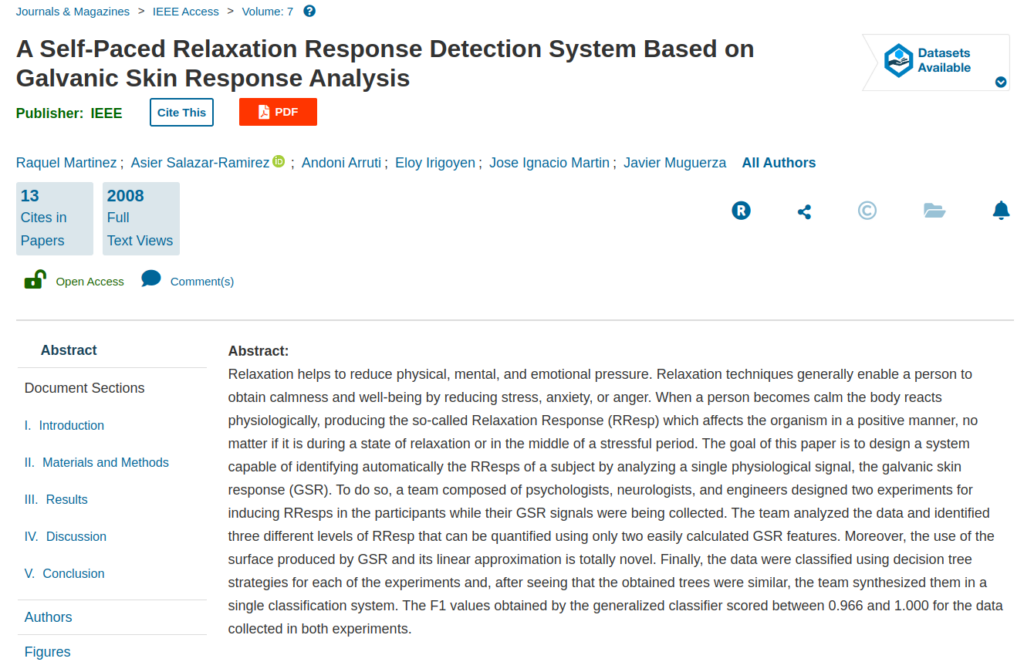Relaxation helps to reduce physical, mental, and emotional pressure. Relaxation techniques generally enable a person to obtain calmness and well-being by reducing stress, anxiety, or anger. When a person becomes calm the body reacts physiologically, producing the so-called Relaxation Response (RResp) which affects the organism in a positive manner, no matter if it is during a state of relaxation or in the middle of a stressful period. The goal of this paper is to design a system capable of identifying automatically the RResps of a subject by analyzing a single physiological signal, the galvanic skin response (GSR). To do so, a team composed of psychologists, neurologists, and engineers designed two experiments for inducing RResps in the participants while their GSR signals were being collected. The team analyzed the data and identified three different levels of RResp that can be quantified using only two easily calculated GSR features. Moreover, the use of the surface produced by GSR and its linear approximation is totally novel. Finally, the data were classified using decision tree strategies for each of the experiments and, after seeing that the obtained trees were similar, the team synthesized them in a single classification system. The F1 values obtained by the generalized classifier scored between 0.966 and 1.000 for the data collected in both experiments.
A Self-Paced Relaxation Response Detection System Based on Galvanic Skin Response Analysis
Publication
IEEE Access
Vol 7, pp. 43730 - 43741
Abstract
Web and Email Links
Related Listings
Journal
Journal of Human Stress / Behavioral Medicine
A previous investigation has demonstrated that the practice of a meditational technique elicits a wakeful, hypometabolic state. Measurement of O2 consumption and CO2 elimination was made by sampling techniques; mean values of these parameters were calculated from 6–10 minute samples. The present study extends this investigation, using a recently developed method of continuous measurement of O2 consumption and CO2 elimination. Continuous measurement of these parameters permitted the de […]
Journal
Nature
Since meditative practices are associated with changes that are consistent with decreased activity of the sympathetic nervous system, it is conceivable that measurable body temperature changes accompany advanced meditative states. With the help of H.H. the Dalai Lama, we have investigated such a possibility on three practitioners of the advanced Tibetan Buddhist meditational practice known as g Tum-mo (heat) yoga living in Upper Dharamsala, India. We report here that in a study perfor […]
Journal
NeuroReport
Previous research indicates that long-term meditation practice is associated with altered resting electroencephalogram patterns, suggestive of long lasting changes in brain activity. We hypothesized that meditation practice might also be associated with changes in the brain's physical structure. Magnetic resonance imaging was used to assess cortical thickness in 20 participants with extensive Insight meditation experience, which involves focused attention to internal experiences. Brai […]

